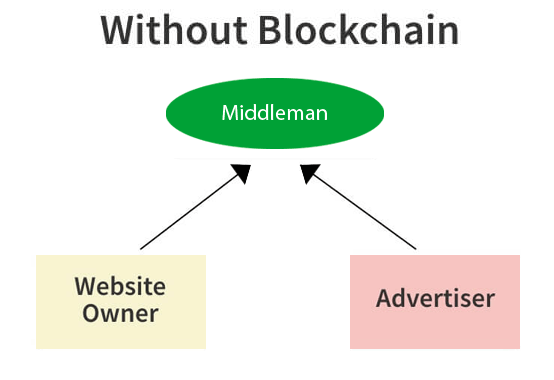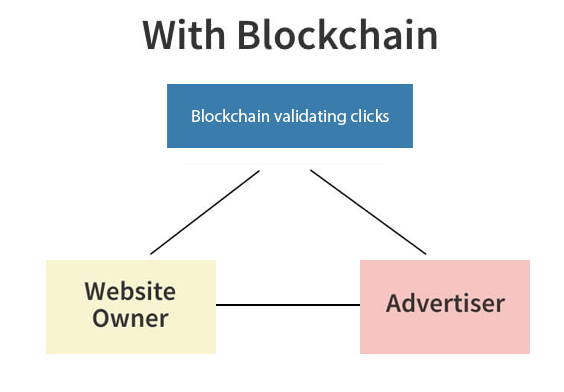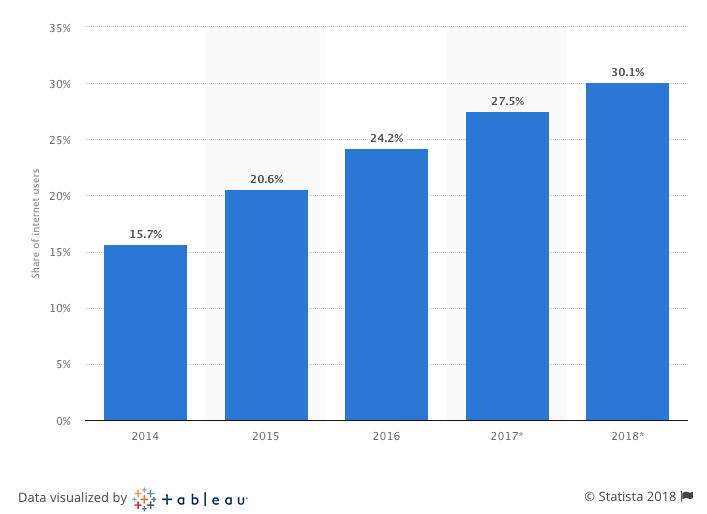Over the last few years, another phrase has entered the business world. Yes, bitcoin and blockchain hit the headlines every so often. In particular, as the price of bitcoin occasionally skyrockets, the business press lights up the headlines with the impact of bitcoin and/or blockchain on certain industries. So, how does blockchain technology impact digital marketing (if anything)?
First and foremost, what is a blockchain?
Blockchain is a new technology built on the common database that provides transparency and security. A blockchain contains a secured historical record.
“A blockchain is a growing list of records, called blocks, that are linked using cryptography. Each block contains a cryptographic hash of the previous block, a timestamp, and transaction data.”
Secondly, how does a blockchain increase security?
Blockchain technology improved the security and transparency of the common database. For example, a true blockchain is public, which means anyone anywhere can view the contents. Frequently, the open and public nature of blockchain technology is referred to as a distributed or open ledger.
“For use as a distributed ledger, a blockchain is typically managed by a peer-to-peer network collectively adhering to a protocol for inter-node communication and validating new blocks. Once recorded, the data in any given block cannot be altered retroactively without alteration of all subsequent blocks, which requires consensus of the network majority. Although blockchain records are not unalterable, blockchains may be considered secure by design and exemplify a distributed computing system with high Byzantine fault tolerance.”
Blockchain discourse becomes complicated due to the cryptographic terms and computer science language. However, a public database remains an easier concept to grasp. For example, take John and Jane. John and Jane are co-workers. One day, John borrows $5 from Jane for lunch. Jane owns an IOU for $5. John and Jane trust each other because they see each other every day. Jane knows John will repay the $5 (or pay for her lunch the next day). Technically, this is a transaction, but no “database” is needed.
The next day, John is out sick and Jane needs $5 for lunch. Jason, another co-worker, lends Jane $5 and Jane tells Jason that John will pay him $5. Again, because all three members are co-workers, there is a high degree of trust. But, if Jason tells his non-work friend Tom that John will give him $5 for a beer after work, then Tom gets a little suspicious. Tom doesn’t know John, nor does he see him every day. Tom may take Jason’s word because they are friends, but the trust chain starts to break down.
How does this related to blockchain technology? A blockchain captures all of these transactions and shares all of the information publicly. As a result, a blockchain enables a myriad of use cases, including money (i.e., bitcoin) and digital marketing.
More Blockchain Info
It tends to take a little time to really grasp the underlying technology behind a blockchain. However, upon gaining some level of comfort, the possibilities of how this technology can impact digital marketing or any field really take shape.
- https://www.investopedia.com/terms/b/blockchain.asp
- https://ihodl.com/tutorials/2017-09-04/what-blockchain-laymans-terms/
What does blockchain mean for digital marketing?
More and more, digital marketing relies on data. From optimizing web sites and improving the user experience to advertisements targeting the right customers, data is the new currency in the marketing world.
-
Disrupt Data Aggregators & Platforms
For most people, data remains a black box. We don’t know or understand how digital advertising works. We know that Google and Facebook have our information, but we don’t really know what information. Frankly, most web users, don’t know how Google or Facebook makes money. They simply accept the privacy concerns in return for information or connections. Most people don’t realize that platforms collect your information and sell it to advertisers so they can offer you products.
As a result, blockchain technology has the potential to disrupt the platforms that aggregate and sell your data. Quicksprout explains how blockchains may one day disrupt platforms and middlemen.
“Blockchain technology makes it possible for advertisers to avoid middlemen. Right now, marketers go through third parties to handle their advertisements. Let’s go through an example. Let’s say a company wants to offer banner advertisements on its website. But it doesn’t want to sell its ad space to just anyone. How does this company proceed? It goes through a platform such as Google. In this case, Google will act as the middleman.”
Currently, Google connects advertisers with potential customers and charges advertisers for its services. In return, advertisers trust Google serves their ads on reputable and relevant web sites that target their desired demographics.

However, the potential of blockchain technology can disrupt the current status quo. For example, companies can avoid platforms because the right blockchain will verify reputable sites.
“Companies won’t have the need to go through a third-party platform such as Google with the blockchain structure. That’s because blockchain users can be verified through its networks. People would know they’re getting what they’re paying for as opposed to potentially paying for clicks that aren’t genuine. It’s still a safe and secure way to process each transaction. Blockchain, ultimately, eliminates the need for intermediaries.”

Under this scenario, then the potential ROI of online advertising increases because marketers would eliminate a fee taking step. However, currently Google also provides an ad platform that makes it incredibly easy to create and serve ads. So, for the ROI of digital advertising to increase, a similar platform would need to be created as well.
But, generally speaking, wherever platforms take a fee in the current digital landscape, these costs should be reduced as the technology develops.
What does the future hold?
For e-commerce companies (or anyone accepting payments online), blockchain technology provides great promise in improving the bottom line. Payments processors (think Mastercard, Visa, American Express and PayPal or Venmo) receive fees from vendors to facilitate money transfers. As an end consumer, we don’t always see the fee, but think about the gas station that offers a discount for cash payment. Or, think about companies that don’t accept American Express. Why do these occur? The companies want to avoid payment fees or don’t want to pay the AmEx fee.
With blockchain technology, companies can accept payment without the processing organizations as a middleman. And, the technology maintains the same (if not greater) security. Although bitcoin (BTC) remains the most notable cryptocurrency built on top of a blockchain, this coin does not make online transactions feasible. However, other cryptocurrencies are built on the same blockchain (which is the same code), but focus on payments. As a result, companies could eventually increase their bottom lines by paying less money to payments processing firms. For more insights, Hackernoon outlines how a cryptocurrency led world benefits consumers through revitalized payments processing.
-
Blockchain-Based Payments Improves Identity Protection
“Cryptocurrencies based on blockchain technology don’t reveal the identities of the transacting parties. Still, these transactions are very transparent as centralized ledger stores the details and give visibility to transactions.”
-
Blockchain-Based Payments Offer Faster Transactions
“Traditional transfers often take long, especially sending money across continents may take up to several days to accomplish. Bitcoin transfers, on the contrary, only takes up a few minutes! Most importantly, they aren’t closed at any point in time, and a transaction could be carried out at almost any point of time, in an instant.”
-
Blockchain-Based Payments Helps Reduce Fraud
“Blockchain-based currencies are extremely secure to transact with. Because of peer-to-peer technology, it is tough to hack into the process and conduct a fraud. Thus making it one of the safest modes of transaction.”
Ultimately, a world with blockchain-based payments at the core mean companies can receive payment faster (no waiting 2-3 days for the bank to transfer your money into your account) and boost their profits (by not paying processing companies). Additionally, consumers using blockchain-based payments receive more security, along with potentially paying less money based on the reduced fees.
-
Improve Transparency and Privacy
It seems like we hear about another data breach every day. Not only do customers fear personal information being stolen, but companies fear hackers stealing their customer data. Blockchain technology provides the potential to improve transparency and personal privacy.
Some of the first headlines about bitcoin and blockchain incorrectly noted that bitcoin transactions were anonymous. In fact, all transactions on a public blockchain remain out in the open. (And many of the criminals that thought they were getting away with something were caught due to authorities reviewing bitcoin blockchain transactions.) As a result, blockchains increase transparency.
In the previous example of eliminating middlemen, the natural extension means brands potentially pay users for their data. In that example, everyone is aware of the transaction, money for data and provides brands with more detailed information. Forbes offers some more details into blockchains increasing transparency.
“Blockchain ledgers are actually much more transparent than traditional ad and search engine networks. All transactions that occur over the ledger (whether it’s clicks or e-commerce purchases) are available for the public to view in the ledger and nearly impossible to erase. Think about how little data digital marketers actually have access to when it comes to clicks and engagement with an advertisement. With greater transparency using the digital ledger, marketers could receive more relevant user information that would assist them in campaign management.”
Another byproduct of eliminating middlemen actually improves personal privacy and transparency. For example, Forbes explains the rationale behind blockchains enhancing privacy.
“Blockchain actually helps to alleviate many of the privacy concerns that are currently being thrown at Facebook and other advertising platforms. Well, by eliminating big media companies from acting as middlemen, users would now have greater control over what personal data they want to release to advertisers and publishers. Even as the ledger verifies the identity of users and hosts transactions, all personal data that users don’t consent to share remains hidden on the network. Being nearly impossible to hack, blockchain can protect user privacy.”
Ultimately, improving transparency and personal privacy should lead to building trust between brands and potential customers.
What does the future hold?
Increasingly, many consumers worry about their data and privacy. As a result, there is an increase in people leveraging ad blocking software and using privatized browsing features in the leading browsers. In the future, consumers may utilize browsers, such as Brave, which build ad blocking into the browsing experience. Additionally, building privacy into the user experience includes blocking ad trackers as well. For the end users, this results in a faster browsing experience, along with an increase in personal privacy because marketers receive less information about your search history. For more, the team explains their mission.
“Brave is on a mission to fix the web by giving users a safer, faster and better browsing experience while growing support for content creators through a new attention-based ecosystem of rewards.”
In addition to Brave, increasingly privacy advocates note Duck Duck Go as a viable search engine. Duck Duck Go is a browser extension that offers privatized browsing and stops ad tracking. For more, the team explains their mission.
“Too many people believe that you simply can’t expect privacy on the Internet. We disagree and have made it our mission to set a new standard of trust online. We’re setting the new standard of trust online, empowering people to take control of their information. You deserve privacy. Companies are making money off of your private information online without your consent. At DuckDuckGo, we don’t think the Internet should feel so creepy and getting the privacy you deserve online should be as simple as closing the blinds.”
For digital marketers and companies that rely on search data (essentially every company), the rise of privacy advocates and ad blocking means finding different ways to understand your core customers.
-
Control Your Ad Content
Finally, another potential use case of blockchain technology provides consumers with the ability to control their content. Yes, the ability to restrict or control potential ads empowers potential customers (and reduces certain digital advertising channels). But, increasingly, people are searching the web with ad blockers. According to Statista ad blocking penetration continues to proliferate.

From slow page load speeds to growing tired of ads ruining the web, people have different reasons for using ad blockers. According to a recent study by Neiman Labs , 51% of people note controlling their own internet experience as the primary reason for leveraging ad blockers. So, if more and more people block ads, how can marketers utilize blockchains to reach a growing segment of the population? Quicksprout outlines how blockchain technology can help reach those disenfranchised with the current state of online ads.
“Blockchain technology can give consumers the right to charge companies for their contact information.If a company wants a consumer to subscribe to their newsletter, the customer can reply with their price to receive that content. For example, each consumer who reads an email could cost brands fractions of a cent. Transactions would be processed through cryptocurrencies automatically. This concept gives consumers complete control over who has their information.”
Like the current marketing trends, marketers must find ways to connect in an authentic voice with potential consumers. If consumers own their ad experience, then marketers that remain authentic and truly ad value will continue to find ways to build relationships. Brands and companies that rely on spam will fall by the wayside if blockchain technology continues to empower people to control their online experience.
What does the future hold?
Recently, AdWeek reviewed the Basic Attention Token (BAT), which is connected to the Brave browser, as a way for consumers to benefit economically from consuming online ads.
“Those using version 0.63.xx of the Brave web browser can opt in to Brave Rewards, the latest update to its advertising scheme that it claims will let 5.8 million monthly users preserve their privacy while helping brands better engage with audiences. Brave, the brainchild of Brendan Eich, the Mozilla co-founder and creator of Javascript, claims to proffer a better value exchange between advertisers and consumers by allowing consumers to keep 70% of the ad revenue share—Brave retains the remainder—by way of Basic Attention Tokens. Brave users will be able to redeem their monthly BAT allowance for either online premium content or real-world rewards with brands that have partnered with the TAP Network, according to the company.”
In its current state, consumers accumulate BAT and can exchange the token for rewards within the marketing channel. In essence, the current iteration of BAT works like a credit card rewards program. However, it is not a far stretch to presume the future will help consumers accumulate and hold BAT tokens in exchange for dollars. Or, in the ultimate end game, hold BAT tokens and watch the price rise over time.
More Blockchain and Digital Marketing Info
Not all advances in technology are bad for the status quo. For example, when Google introduced AdWords, small companies were able to compete with big brands to connect with potential customers. In a similar fashion, blockchain technology does not spell the end of digital marketing as we know it. Rather, the technology can actually enhance the web experience and strengthen relationships with potential customers.
As an example, NinjaPromo offers a few ways that marketers can effectively use a blockchain that helps improve their results.
- Verify the delivery of advertising and ensure that the real person watched the advertisement within the prescribed time.
- Verify the involvement or effectiveness of advertising.
- Prevent the same ad from showing to the user again and set the optimal frequency of impressions.
- Pay to publishers, tech companies, agencies responsible for creating, delivering and advertising effectiveness.
- Pay clients for using their data, such as behavior or preferences.
- Track interaction with any ad placed, as well as its effectiveness.
- Reward users for providing explicit data, such as personal information, interests, and shopping planning.
- Show to the consumer (if necessary) how specific data was used by the advertiser.
For more information on how blockchain technology can potentially impact the digital marketing landscape, here are some useful resources.
- https://www.quicksprout.com/2018/11/15/how-blockchain-is-changing-the-digital-marketing-industry/
- https://www.forbes.com/sites/forbesagencycouncil/2018/10/04/how-much-will-blockchain-really-affect-digital-marketing/#6e81d28230dc
- https://blog.hubspot.com/marketing/blockchain-could-change-digital-marketing
- https://medium.com/swlh/how-blockchain-can-change-digital-marketing-c0cbc27a664c





